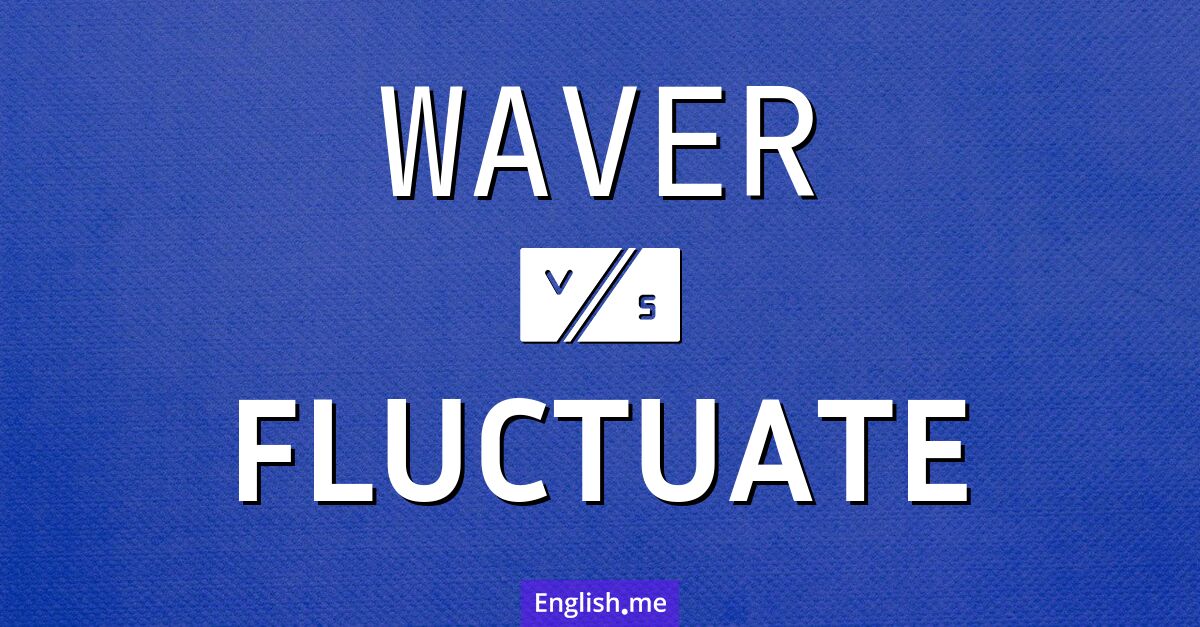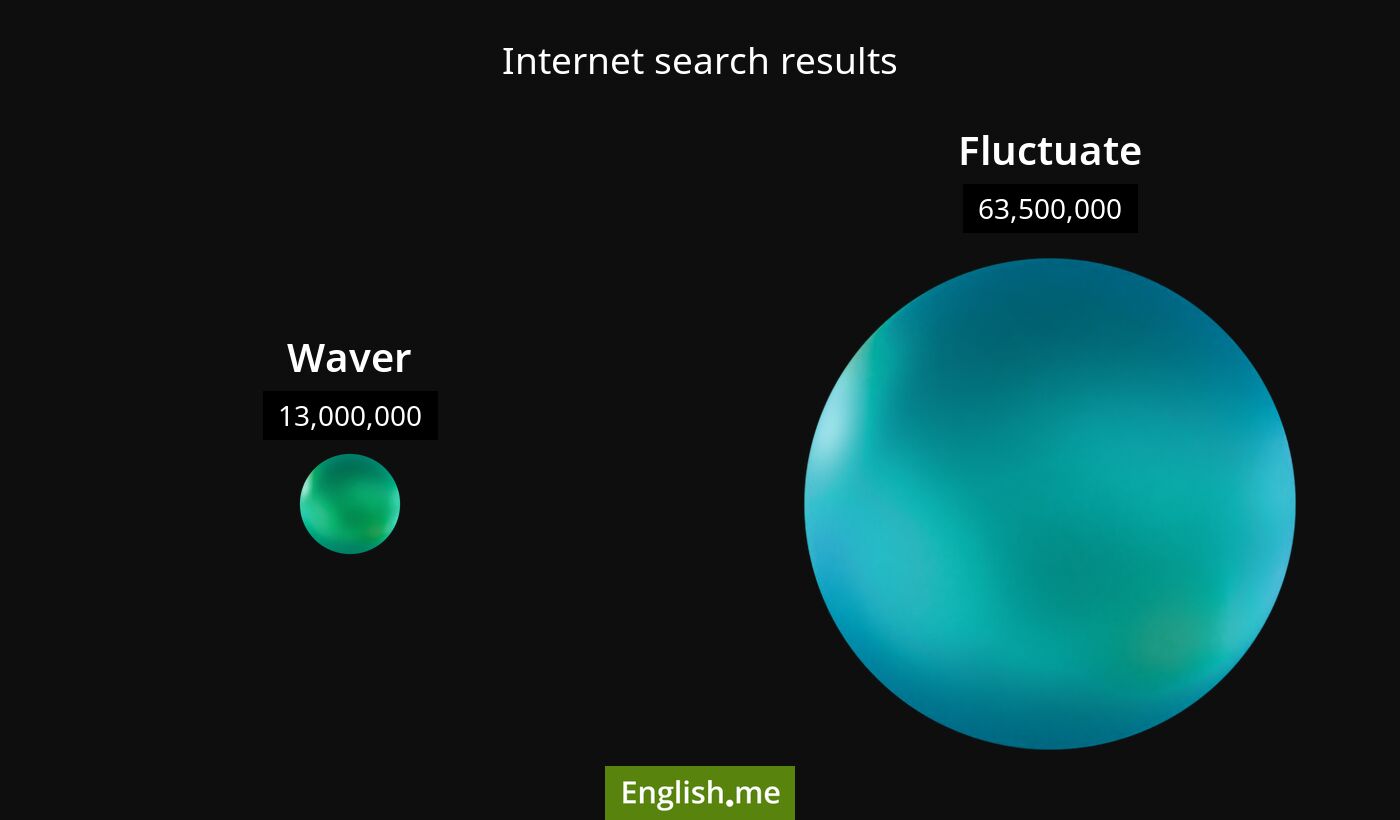"Waver" vs. "fluctuate": navigating nuances in change
Reviewed and edited by  Anwar Kareem 30/09/2024, 08:56
Anwar Kareem 30/09/2024, 08:56
English.me team member

 What is similar?
What is similar?
Both words describe variability or change in a state, position, or condition.
 What is different?
What is different?
Waver often implies hesitation or lack of a firm decision, while fluctuate generally refers to changes in level, value, or magnitude over time.
 Which one is more common?
Which one is more common?

 Examples of usage
Examples of usage
Waver- Her voice began to waver as she spoke.
- He didn't waver in his decision despite the challenges.
- The temperatures tend to fluctuate in early spring.
- Her mood seemed to fluctuate throughout the day.

 English
English español
español française
française italiano
italiano deutsche
deutsche 日本語
日本語 polski
polski česky
česky svenska
svenska Türkçe
Türkçe Nederlands
Nederlands